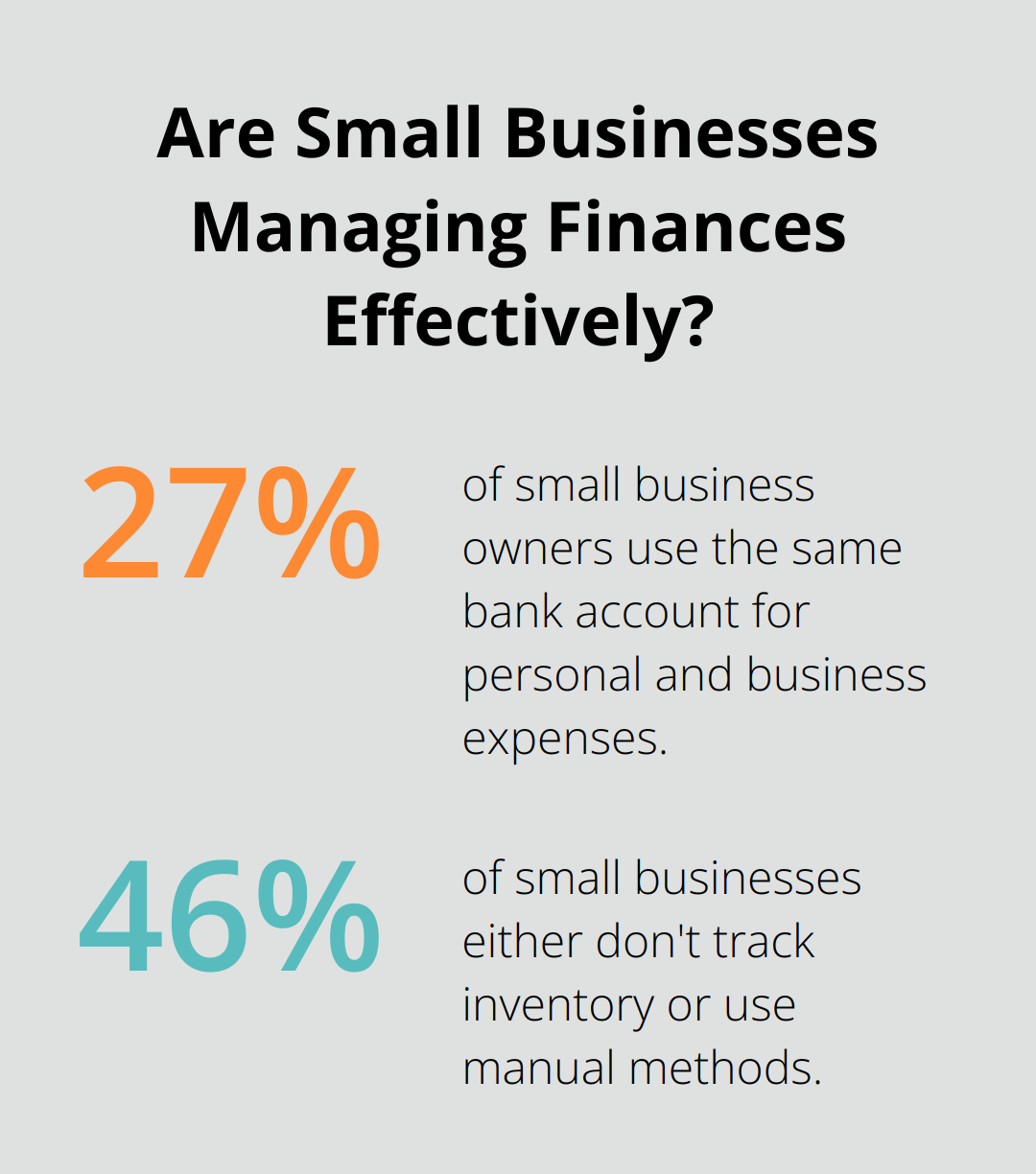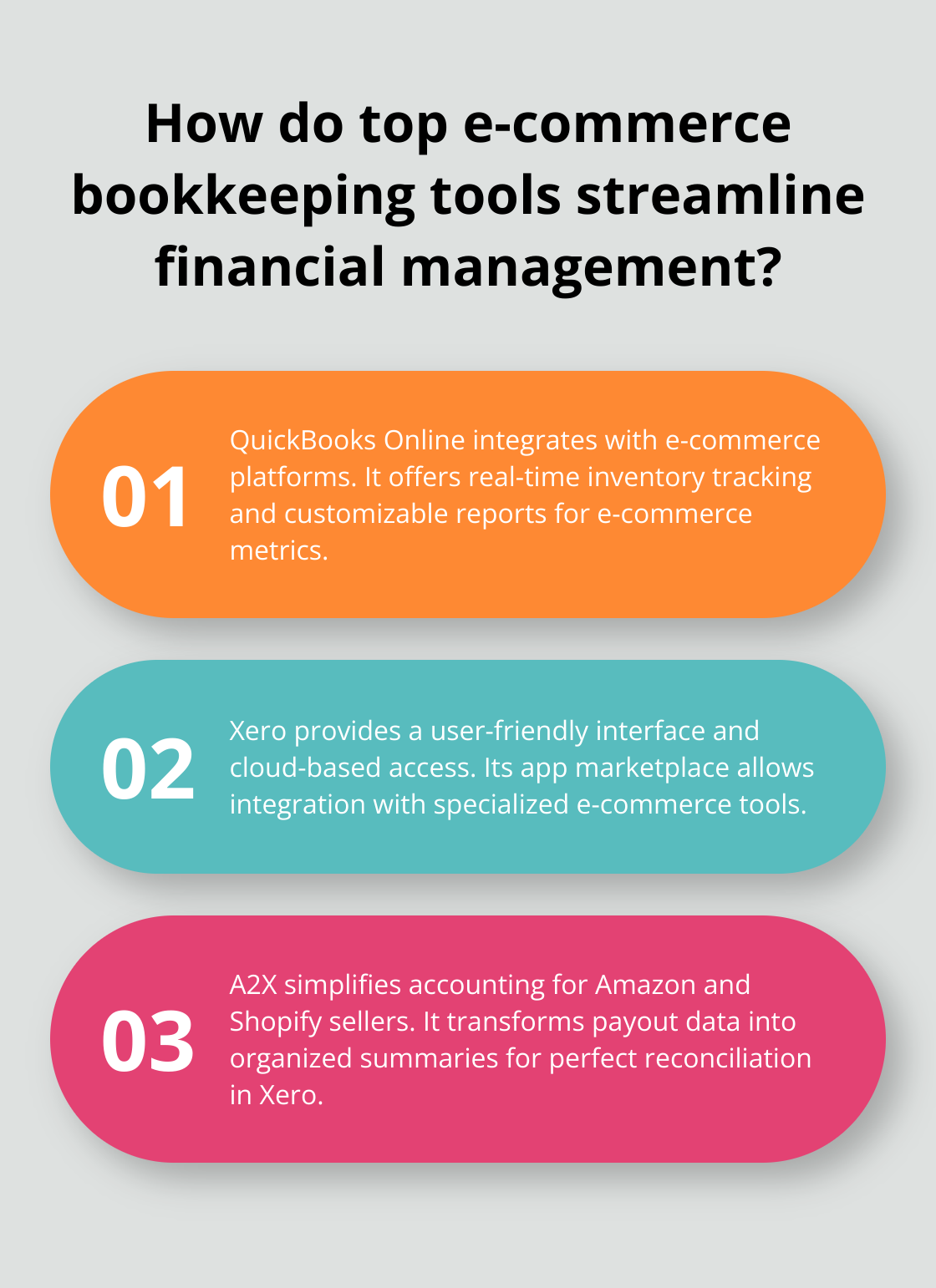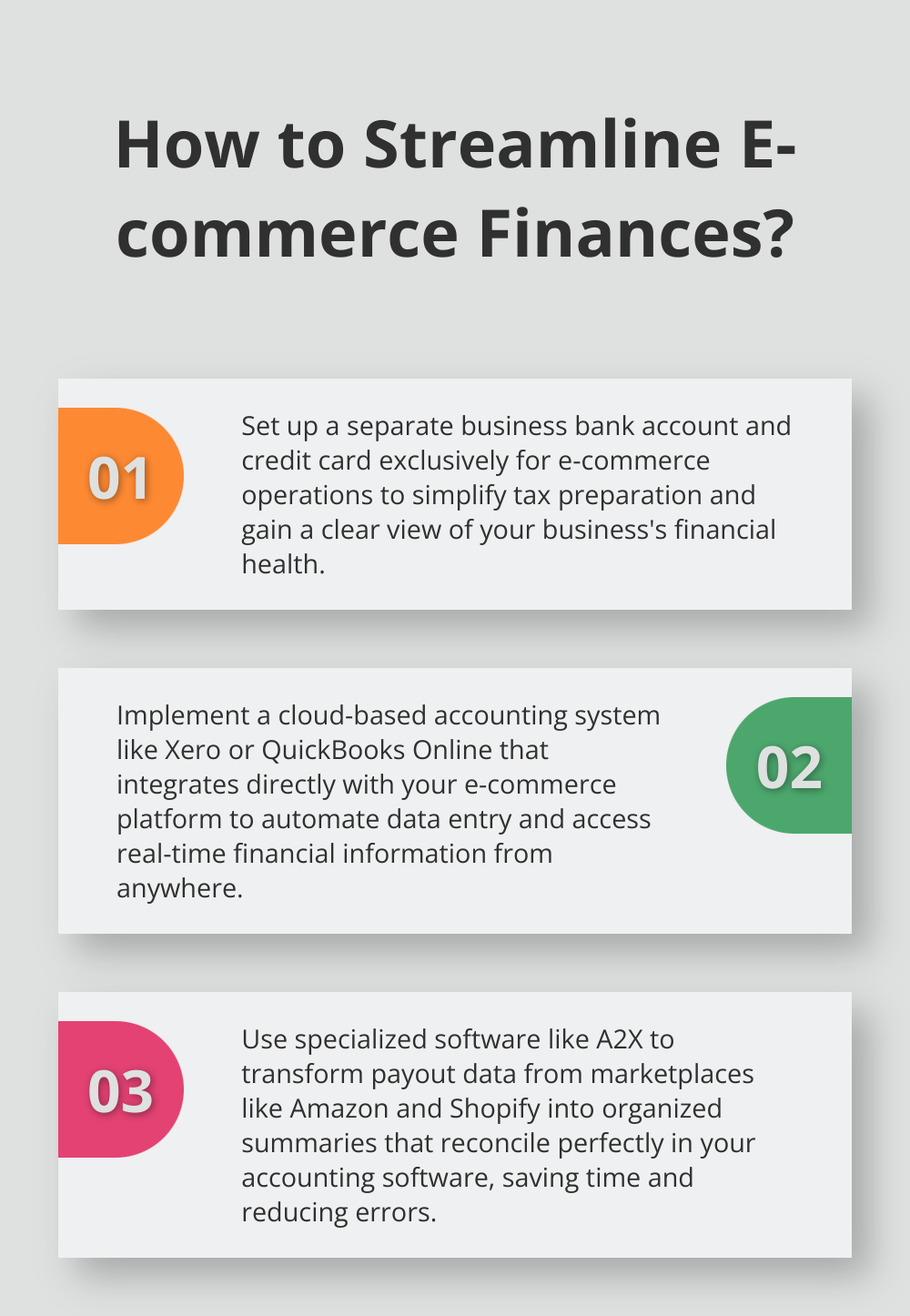E-commerce businesses face unique financial challenges. Proper bookkeeping is essential for tracking revenue, managing expenses, and maintaining tax compliance.
At Optimum Results Business Solutions, we understand the complexities of e-commerce bookkeeping services. This guide will help you streamline your online business finances and set the stage for sustainable growth.
Why E-commerce Bookkeeping Matters
E-commerce bookkeeping forms the foundation of a thriving online business. It’s not merely about record-keeping; it’s about gaining a clear financial picture that drives growth and profitability.
Master Revenue and Expense Tracking
Accurate tracking of revenue and expenses is vital for e-commerce success. Without it, you operate blindly. A study by the U.S. Small Business Administration revealed that 82% of business failures result from poor cash flow management. To avoid this fate, implement a system that captures every transaction, from sales to shipping costs. This level of detail allows you to identify your most profitable products and eliminate underperforming ones.
Optimize Cash Flow for Growth
Cash flow is the lifeblood of any e-commerce business. To stay ahead, monitor your cash flow weekly. This practice helps you anticipate slow periods and plan for inventory purchases. Try using cash flow forecasting tools to predict future financial positions and make informed decisions about expansion or cost-cutting. An ecommerce company can improve its cash flow management by diversifying streams of cash revenue, adopting lean management tactics, and defining clear cash flow objectives.
Navigate the Tax Maze
Tax compliance presents a minefield for e-commerce businesses. The Wayfair decision in 2018 changed the landscape, overturning a physical presence rule that prevented states from taxing sales by out-of-state sellers. Staying compliant requires understanding your obligations across different jurisdictions. Use automated tax calculation software to ensure you collect the right amount of tax for each sale (this proactive approach can save you from costly audits and penalties).
Leverage Data for Strategic Decisions
E-commerce bookkeeping isn’t just about avoiding problems; it’s about creating opportunities. With accurate financial data at your fingertips, you can make strategic decisions that propel your business forward. Whether it’s expanding into new markets or investing in marketing, solid bookkeeping practices provide the foundation for sustainable growth.
Streamline Operations with Expert Support
While managing e-commerce finances can be complex, partnering with experts can simplify the process. Companies like Optimum Results Business Solutions specialize in e-commerce bookkeeping, offering tailored solutions that go beyond basic record-keeping. Their services can help transform financial data into actionable insights, giving you a competitive edge in the fast-paced world of online retail.

As we move forward, let’s explore the essential e-commerce bookkeeping practices that will set your online business on the path to financial success and growth.
Master E-commerce Bookkeeping Essentials
E-commerce bookkeeping requires precision and consistency. It creates a financial ecosystem that supports your online business’s growth and sustainability. Let’s explore the key practices that will elevate your e-commerce bookkeeping game.
Establish Clear Financial Boundaries
The first step in effective e-commerce bookkeeping is to draw a clear line between personal and business finances. A study by the National Small Business Association found that 27% of small business owners use the same bank account for personal and business expenses. This practice can lead to tax headaches and skewed financial perspectives. Open a separate business bank account and credit card exclusively for your e-commerce operations. This separation simplifies tax preparation and provides a clear view of your business’s financial health.
Adopt Cloud-Based Accounting Solutions
In the fast-paced world of e-commerce, real-time financial data is invaluable. Cloud-based accounting systems offer this advantage, allowing you to access your financial information from anywhere, at any time. These platforms often integrate directly with popular e-commerce platforms, automating data entry and reducing errors. For instance, Xero is considered best for growing e-commerce businesses, while QuickBooks Online is favored by accountants and bookkeepers.
Record Transactions Rigorously
Accurate transaction recording forms the backbone of sound e-commerce bookkeeping. You must meticulously document every sale, refund, and expense. This level of detail not only ensures tax compliance but also provides insights into your business’s performance. Use features like bank feeds in your accounting software to automatically import transactions. Set aside time each week to categorize these transactions properly. This habit will save you countless hours during tax season and provide a real-time snapshot of your financial position.
Reconcile Accounts Regularly
Account reconciliation might seem tedious, but it’s essential for detecting errors and preventing fraud. Regular reconciliation can significantly improve operational efficiency. Set a monthly schedule to reconcile your bank statements, credit card statements, and payment processor reports with your accounting records. This practice ensures that your books accurately reflect your financial reality and helps you catch discrepancies early.
Manage Inventory Effectively
For e-commerce businesses, inventory is often the largest asset. Poor inventory management can lead to stockouts, overselling, and tied-up capital. Implement an inventory management system that integrates with your accounting software and e-commerce platform. This integration allows for real-time tracking of cost of goods sold (COGS) and inventory valuation. Conduct physical inventory counts regularly to verify your digital records. According to a study by Wasp Barcode Technologies, 46% of small businesses either don’t track inventory or use manual methods. Don’t fall into this trap – accurate inventory tracking is essential for financial health and customer satisfaction.

These essential e-commerce bookkeeping practices create a solid financial foundation for your online business. While these practices are important, they can be complex and time-consuming. Many e-commerce businesses find value in partnering with experts to ensure their bookkeeping is not just accurate, but also strategically aligned with their business goals. With the right practices and support, your e-commerce business will be well-positioned for financial success and sustainable growth. Now, let’s explore the tools and software that can further streamline your e-commerce bookkeeping processes.
Powerful E-commerce Bookkeeping Tools
E-commerce bookkeeping requires precision and efficiency. The right tools transform this complex task into a streamlined process. Let’s explore the most effective software solutions that will elevate your e-commerce financial management.
QuickBooks Online: The E-commerce Powerhouse
QuickBooks Online stands out as a top choice for e-commerce businesses. Connect your e-commerce platforms and marketplaces with a quick and easy setup, and start seeing your income and expenses all in one place. This integration reduces manual data entry and provides a comprehensive view of your financial data.

QuickBooks Online’s inventory tracking feature provides real-time updates on stock levels, which helps prevent overselling and stockouts. The software also offers customizable reports tailored to e-commerce metrics, giving you insights into your best-selling products and most profitable sales channels.
Xero: Flexibility for Growing E-commerce Businesses
Xero has gained popularity among e-commerce businesses for its user-friendly interface and scalability. Its cloud-based platform allows easy access to financial data from anywhere, a key feature for online businesses operating across multiple time zones.
One of Xero’s standout features is its extensive app marketplace. This ecosystem allows e-commerce businesses to integrate specialized tools for inventory management, shipping, and customer relationship management.
A2X: Simplifying Amazon and Shopify Accounting
For businesses selling on Amazon or Shopify, A2X is a game-changer. This specialized software addresses the unique challenges of marketplace accounting. A2X transforms payout data from Amazon, Shopify, eBay, Etsy, and Walmart into organized summaries that reconcile perfectly in Xero. This efficiency allows you to focus on growing your business rather than getting bogged down in financial minutiae.
Inventory and Payment Integration
While accounting software forms the core of your e-commerce bookkeeping system, integrating inventory management and payment gateways completes the picture. Solutions like TradeGecko or Cin7 offer advanced inventory features that sync with your accounting software, providing real-time cost of goods sold (COGS) data.
Payment gateway integrations are equally important. Stripe and PayPal, two popular choices, offer direct integrations with most accounting software. These integrations ensure that every transaction is accurately recorded, reducing the risk of discrepancies and simplifying reconciliation.
By implementing these powerful tools, you can restore financial order to your e-commerce business and boost your profits through efficient bookkeeping practices.
Final Thoughts
E-commerce bookkeeping forms the backbone of a successful online business. It provides clarity on revenue streams, expenses, and overall financial health, enabling data-driven decisions and sustainable growth. Accurate financial data allows you to identify trends, seize opportunities, and navigate challenges with confidence in a competitive marketplace.

Professional assistance can elevate your e-commerce bookkeeping to new heights. Optimum Results Business Solutions offers specialized ecommerce bookkeeping services that transform financial data into strategic insights. Their expertise helps businesses stay ahead of the curve and make informed decisions for long-term success.
Effective bookkeeping practices include separating personal and business finances, adopting cloud-based accounting systems, and investing in inventory management tools. These steps create a solid financial foundation that supports your business goals and sets the stage for growth in the dynamic world of online retail.








